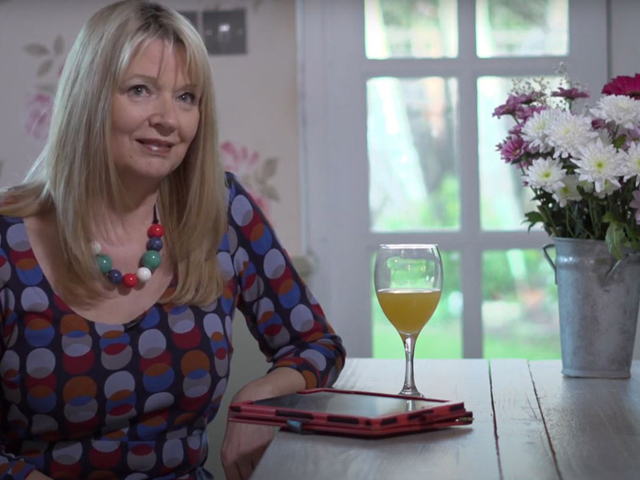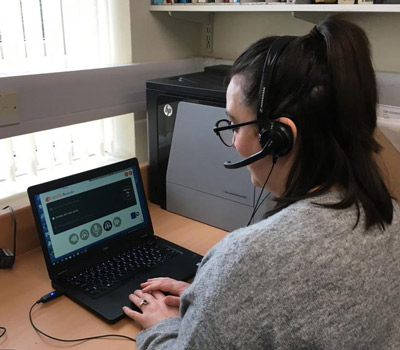19 March 2021 News

Pioneering technology to help people with loss of voice caused by motor neurone disease (MND) is being made permanently available in Dorset.
Over the last couple of years, Dorset HealthCare’s Speech and Language Therapy Team has trialled a ‘voice banking’ service, funded by the East Dorset and New Forest branch of the Motor Neurone Disease Association.
This offered MND patients the chance to record hundreds of words and phrases which they can use to communicate in the event of losing their voice as the illness progresses.
And it has proved such a hit, used by more than 40 people, the Trust has now provided funding to make the service permanent.
Dorset is one of the few areas in the country to offer this service. Poole resident and service user Annie Allen, who has lost her ability to speak, said:
“My husband and son find it a great comfort to still be able to hear my voice. I would urge anyone with MND, or any kind of degenerative speech issues, to bank their voice – and do it as soon as possible.
“If I had left mine any longer, it may have been too late. Even if you do not ever need to use your bank voice, at least you will have it immortalised for your loved ones.”
Between 50-60 people are diagnosed with MND each year in Dorset. More than 80 per cent of them will develop communication problems, with many losing their voices altogether.

However, the voice banking service gives people to chance to preserve their speech on a computer. They are provided with a laptop and headset and, over the course of a few weeks, are asked to record around 350 sentences. Advances in technology now mean it is possible to create a voice with just 50 sentences, with some voice banking services able to create a synthetic voice with just 3 minutes of recording.
And, if a person’s speech does deteriorate over time, these recordings can be used to vocalise almost anything they type into their computer – allowing them to hold conversations in their own voice.
Matthew Hollis, Communications Aids Co-ordinator for the MND Association, said:
“A person’s voice is a fundamental part of them and voice banking allows them to retain this part of their individuality, if and when the progression of their disease means they lose the ability to speak.
“Having individual support to help with the process of voice banking is a real confidence boost, and having people championing the service is so valuable in terms of awareness. The Dorset service is a great demonstration of how a local scheme can ensure timely and efficient support for people with MND.”
A short film outlining how the voice banking service works, and the positive impact it had for some local people with MND can be watched below.
Luisa Mellish, service manager for Dorset HealthCare added:
“We are delighted to provide this service. Technology has moved on so much in recent years – recordings are more accurate, and it is much quicker for people to do the ‘banking’.
“We can also offer additional functions such as message banking, which allows users to record any number of common or meaningful phrases they use on a regular basis. And the service can help people with other degenerative conditions which could affect their voice, not just MND.”
This content is hosted by a third party
You must consent to targeting cookies set by the third party to view this content.
Manage cookie preferences